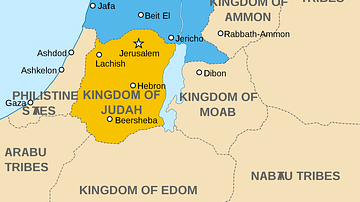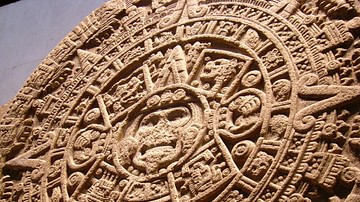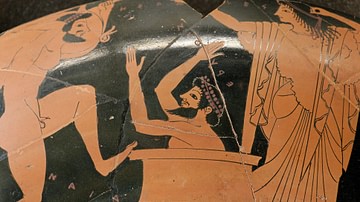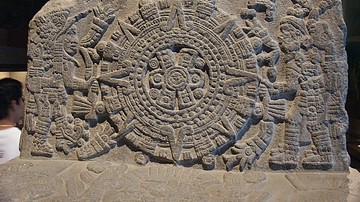Search
Search Results

Article
The Boy Who Was Sacrificed
The Boy Who Was Sacrificed is a legend of the Pawnee nation highlighting the belief that everything happens for a reason according to the will of Ti-ra'wa ("Father Above"), the supreme creator, and how even the smallest creatures have an...

Definition
Quetzalcóatl
Quetzalcóatl (pron. Quet-zal-co-at) or 'Plumed Serpent' was one of the most important gods in ancient Mesoamerica. Quetzalcóatl was the god of winds and rain, and the creator of the world and humanity. A mix of bird and rattlesnake, his name...

Definition
Ahuitzotl
Ahuitzotl (Auitzotl) was an Aztec ruler who reigned between 1486 and 1502 CE. He was one of the greatest generals of the ancient Americas and he left to his nephew, Montezuma, an enlarged and consolidated empire which had been ruthlessly...

Article
The Temple in Jerusalem
According to Jewish tradition, the original Jerusalem Temple was ordained by Yahweh/God, as described in 2 Samuel 7:12 where Yahweh commands Nathan to tell David: When your days are fulfilled and you lie down with your ancestors...

Article
Ancient Israelite & Judean Religion
As early as the 10th century BCE, Israelite and Judean religion began to emerge within the broader West Semitic culture, otherwise known as Canaanite culture. Between the 10th century and 7th centuries BCE, ancient Israelite and Judean religion...

Definition
Temple at Uppsala
The Temple at Uppsala was a religious center dedicated to the Norse gods Thor, Odin, and Freyr located in what is now Gamla Uppsala in Sweden. It is described by the 11th-century historian Adam of Bremen as the most significant pagan site...

Definition
Tonatiuh
Tonatiuh, 'Turquoise Lord,' was the 5th and present sun in the Aztec view of the cosmos and the fierce sun god of several other Postclassic Mesoamerican cultures, including the Toltecs. It was thought that only the regular offering of hearts...

Definition
Valentine's Day
Saint Valentine’s Day, or simply Valentine’s Day, is celebrated on the 14th of February, almost internationally but primarily in western societies. It is a commemorative Christian feast for some but a secular occasion for others who see it...

Definition
The Children of Heracles
The Children of Heracles (Heraclidae) is one of Euripides' lesser known and least popular works, as is the myth surrounding the tragedy play. Its date is also uncertain, possibly written in the late 430s or early 420s BCE. The play revolves...

Article
The Aztec New Fire Ceremony
The New Fire Ceremony, also known as the Binding of the Years Ceremony, was a ritual held every 52 years in the month of November on the completion of a full cycle of the Aztec solar year (xiuhmopilli). The purpose of it was none other than...